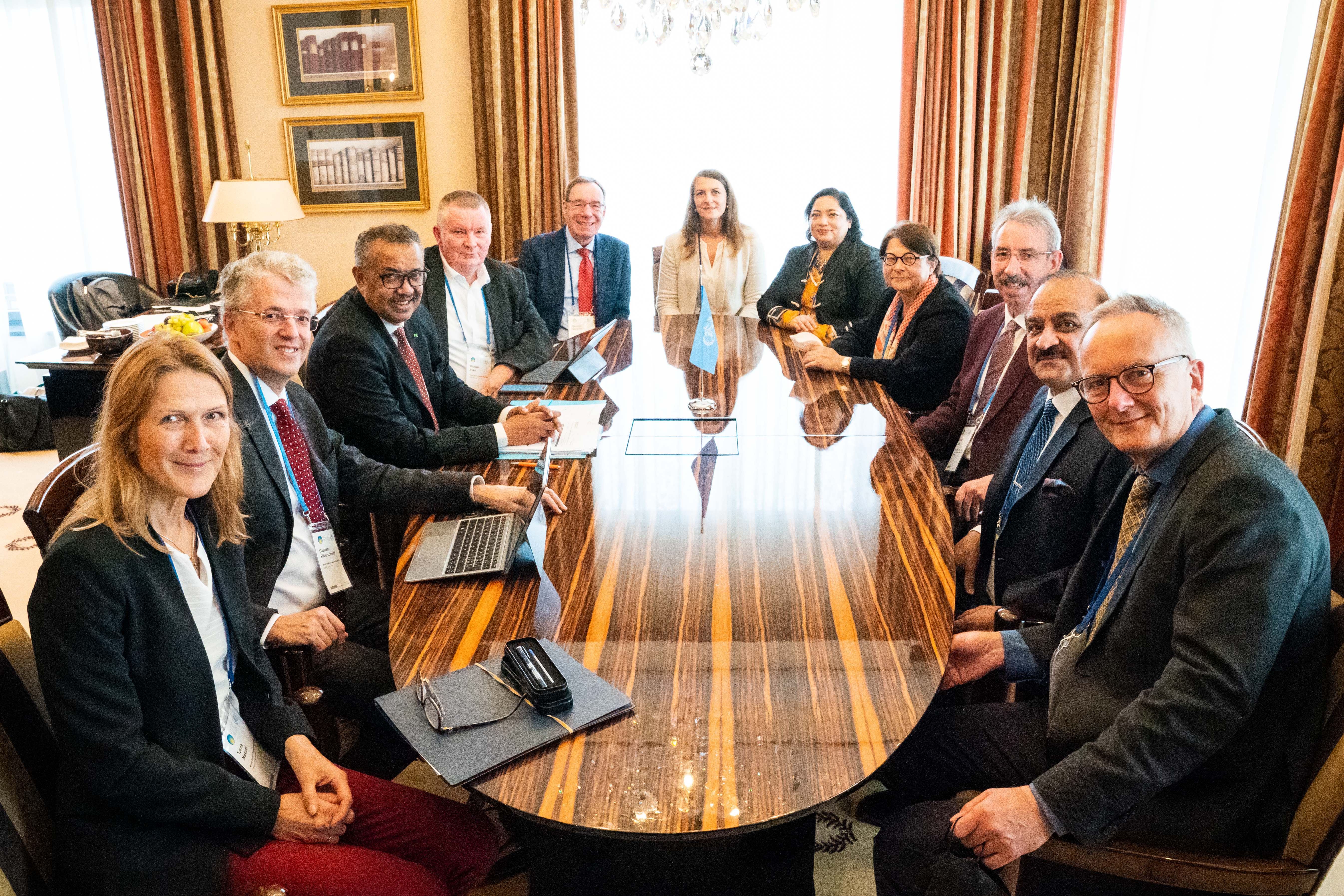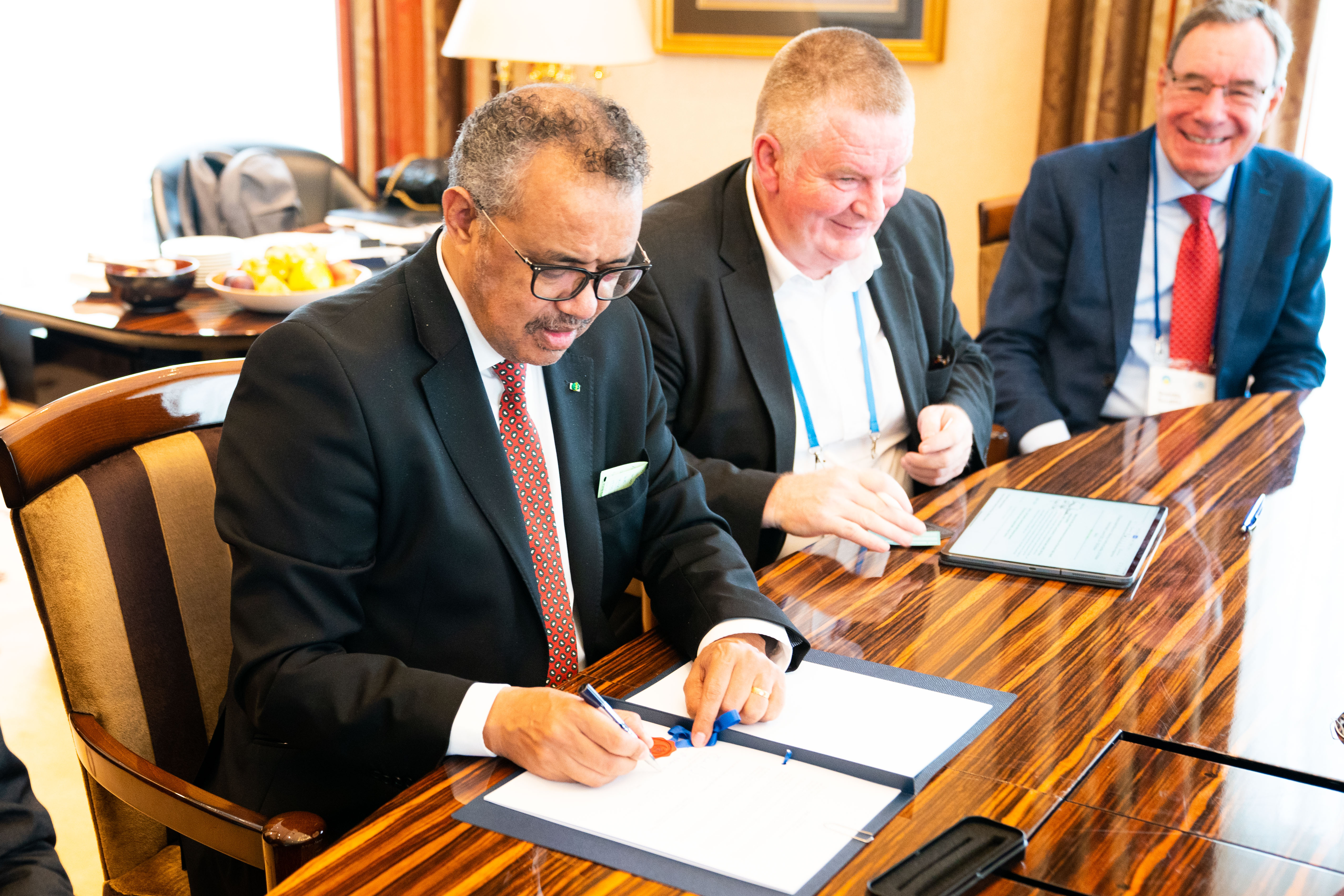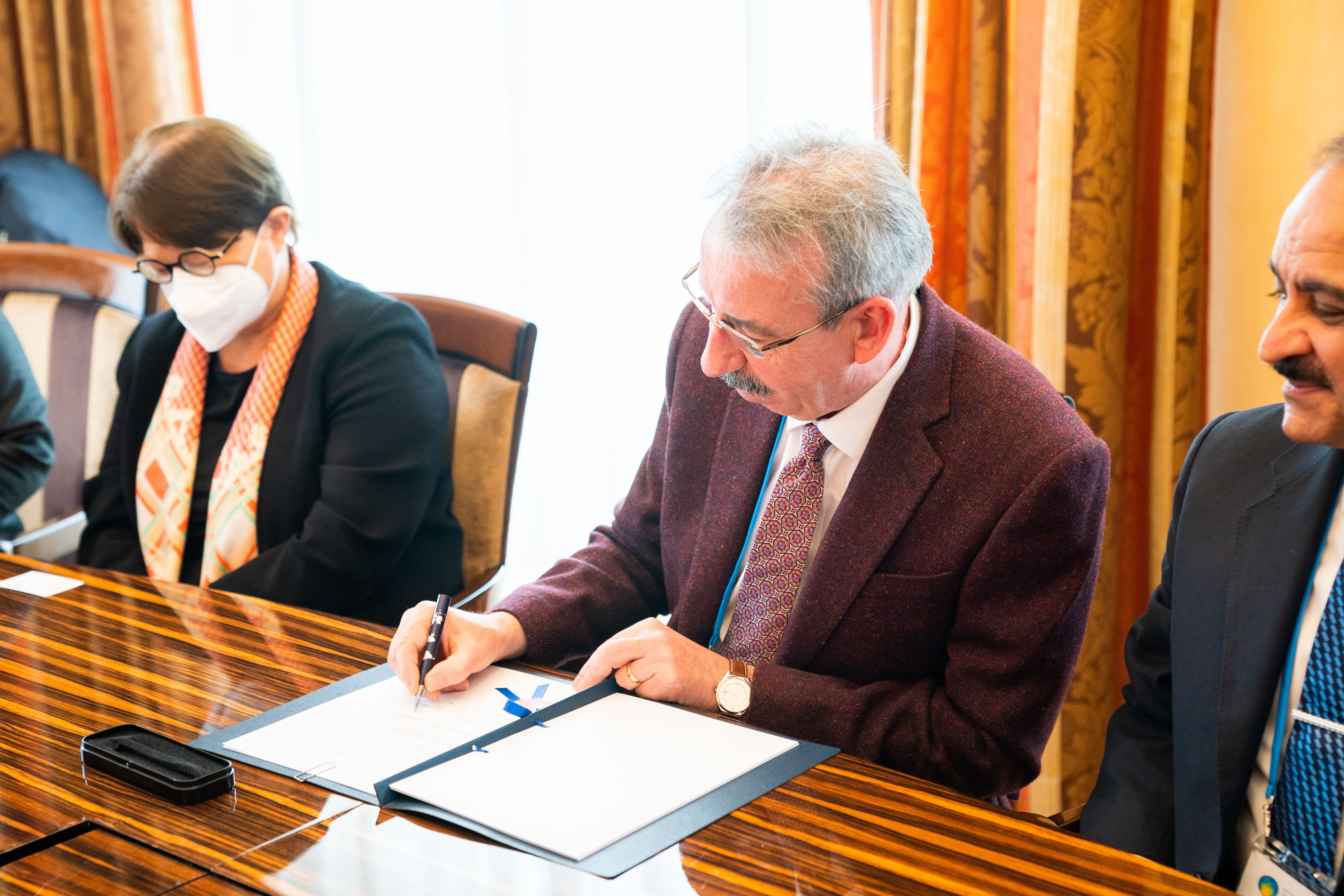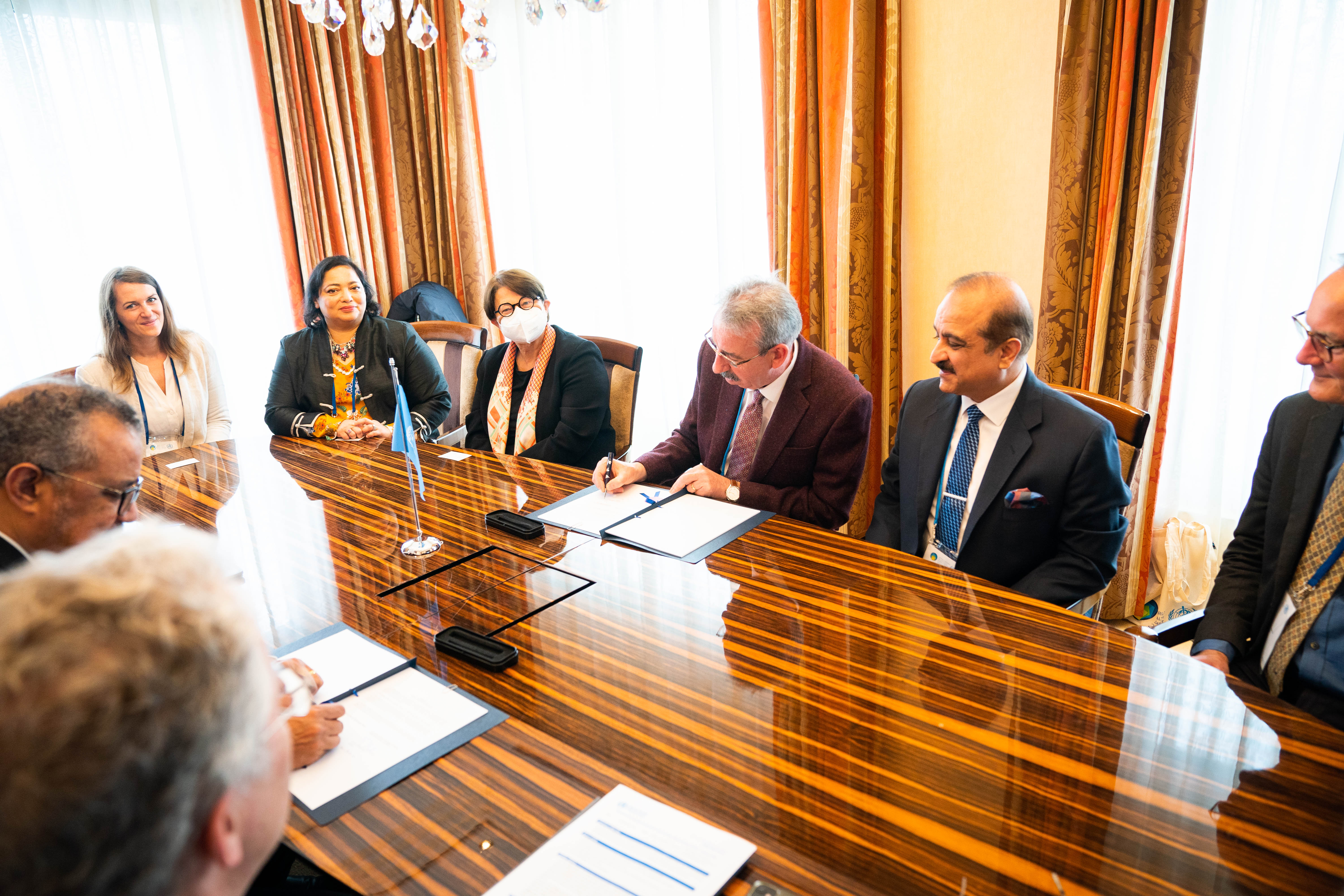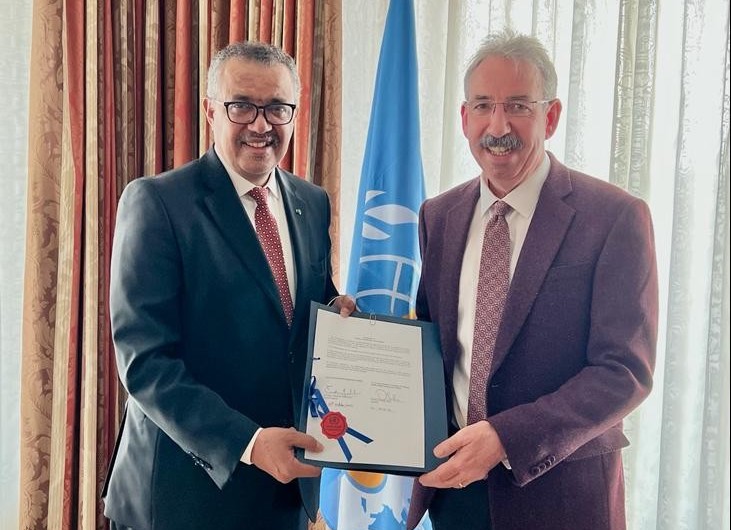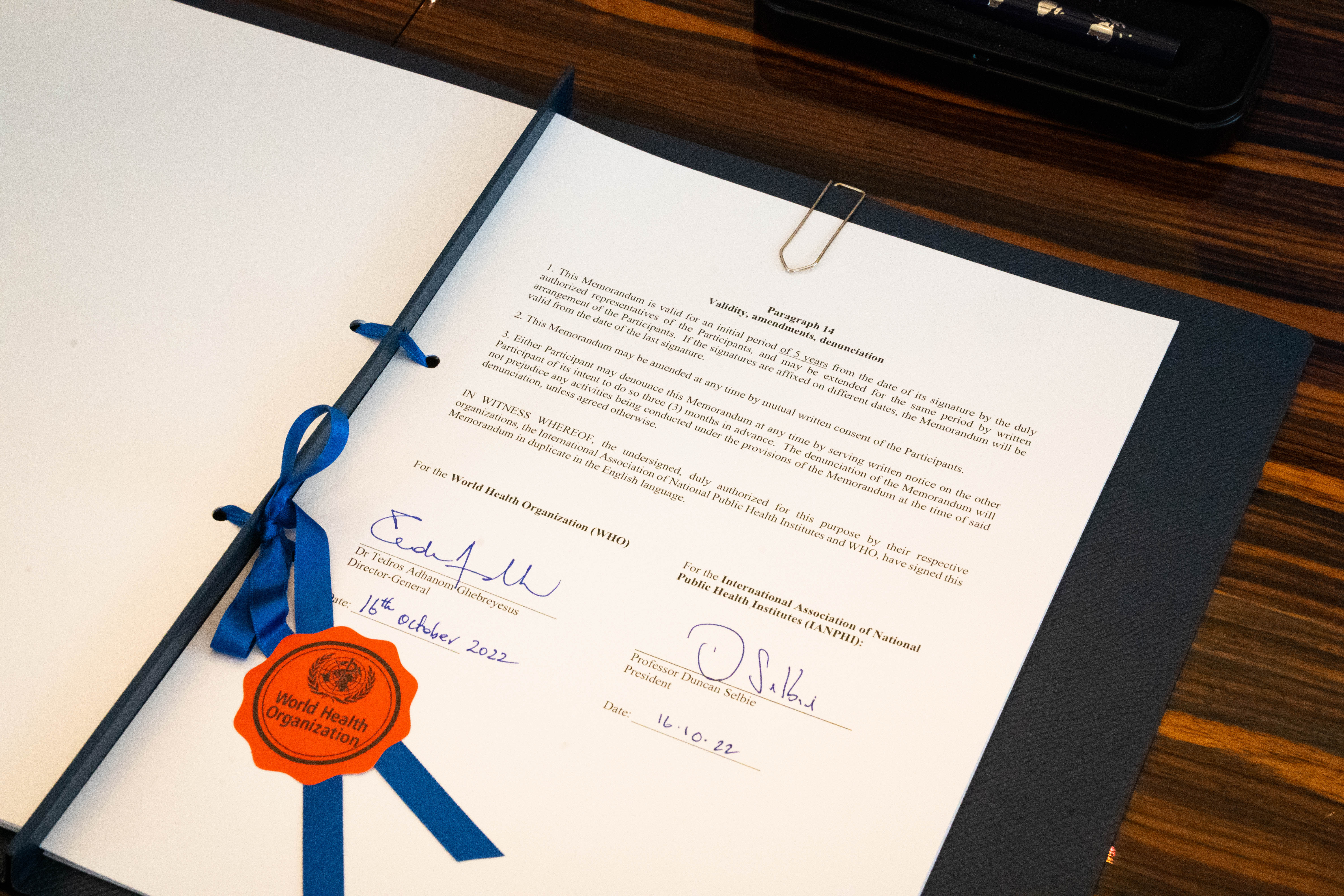IANPHI and WHO Partner to Strengthen Public Health Functions and Health Emergency Preparedness
Today at the World Health Summit in Berlin IANPHI and the World Health Organization (WHO) signed a Memorandum of Understanding outlining their joint efforts to achieve their common objectives to strengthen public health functions at global, regional and country level while advocating for greater equity, inclusiveness and coherence.
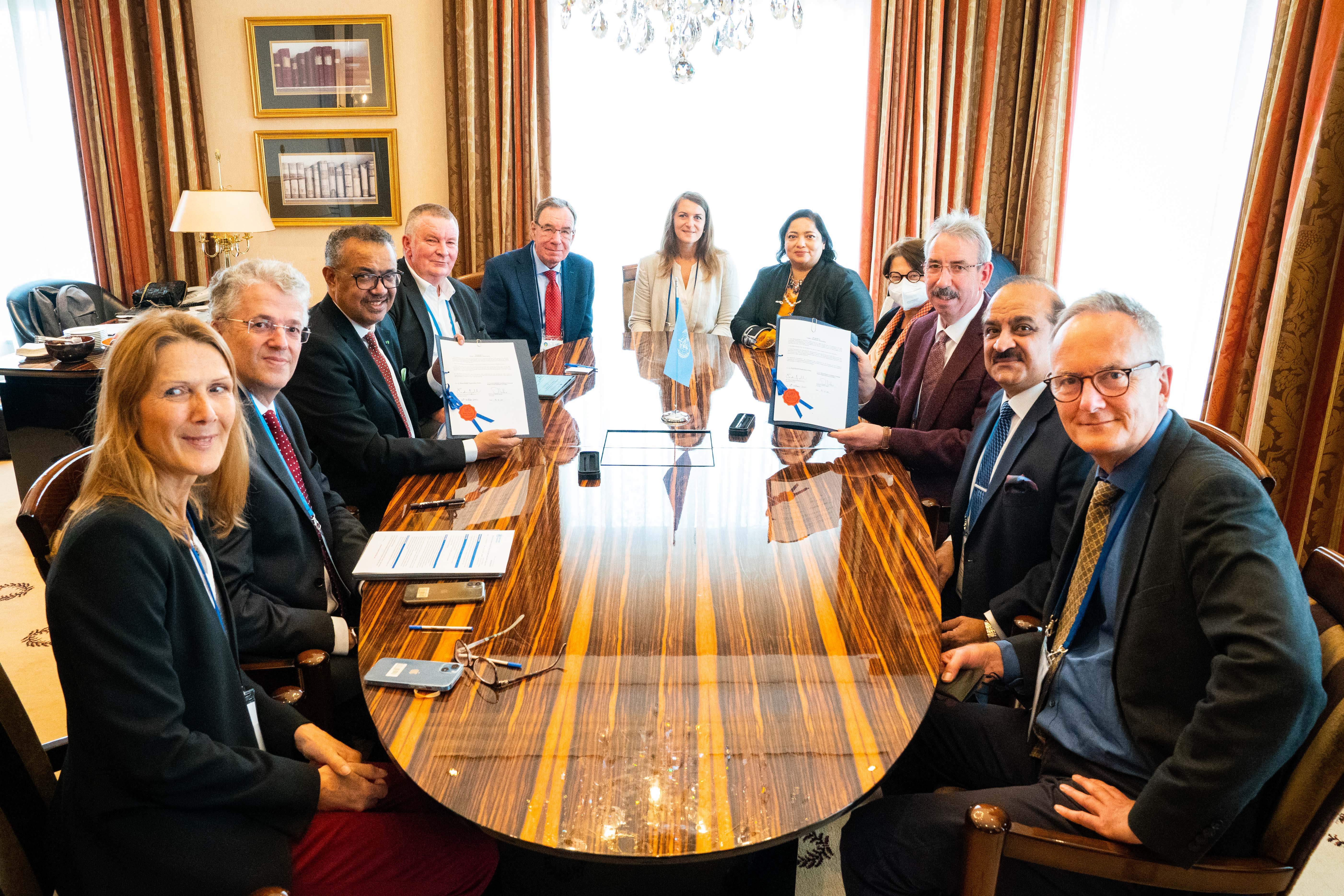
IANPHI and WHO share the same vision that Essential Public Health Functions are a comprehensive and cost-effective approach to advance universal health coverage, health security and healthier populations.
The COVID-19 pandemic underlined the key role of National Public Health Institutes (NPHIs). Every epidemic, every pandemic, begins and ends in a country – indeed, in a community. NPHIs are at the forefront of preparedness, detection, and response efforts in their respective countries.
Through this agreement, IANPHI and WHO will work together to enhance national public health capacities through supporting NPHIs at the technical and policy level to establish or strengthen their role in national public health as well as their emergency preparedness and response functions in their national contexts, while also strengthening other vital areas for NPHIs’ sustainability.
The strengthened alliance between IANPHI and WHO is critical in ensuring that global and regional structures are designed to support national and local capacities and provide the right avenues for collaboration and coordination. Together IANPHI and WHO can leverage each other’s capacities to strengthen essential public health capacities and emergency preparedness at national level and ultimately promote and protect the health and well-being of people.
Today’s agreement is a historic moment for both organizations.
Today’s agreement is a historic moment for both organizations,” said Prof. Duncan Selbie, president of IANPHI, at the signing event with Dr. Tedros Adhanom Ghebreyesus, director general of WHO. “Formalizing this aims to strengthen national public health capacity and capability to deliver health gains through prevention and promotion measures, and emergency preparedness and response. IANPHI with its member national public health institutes look forward to this agreement making a real difference to the public’s health.”
Also attending the signing event for IANPHI were members of the IANPHI Executive Board, Prof. Geneviève Chêne, chief executive of Santé publique France, and Prof. Aamer Ikram, director general of the National Institute of Health of Pakistan, as well as Dr. Neil Squires, director of global public health at the UK Health Security Agency, Dr. Quentin Sandifer, strategic advisor to IANPHI, Sadaf Lynes, senior consultant at IANPHI, and Juliette Fugier, program manager at IANPHI.
The cooperation between IANPHI and WHO will focus especially on the following priority areas:
- Facilitating peer to peer review of national public health institutional capacity to document mandate, strategic position, capacity and capabilities and priorities for development of IANPHI Members;
- Developing tools, guidance and IANPHI deployable capability to provide technical support to strengthen national health emergency preparedness, response and resilience systems capacity to avert outbreaks or reduce the impact of emergencies and disasters on health;
- Strengthening collaboration with Schools of Public Health and training institutions in order to promote multi-disciplinary, competency based public health workforce development, as a key contribution to the ‘Roadmap to develop the Public Health and Emergency Workforce’;
- Engaging and supporting National Public Health Institutes as key advocates and actors of climate mitigation and adaptation;
- Strengthening the Essential Public Health Functions and their role with primary health care in fostering an integrated approach to health systems strengthening and resilience for universal health coverage, health security and healthier populations;
- Promoting science-based leadership and technical expertise through public health research.
View the announcement on the WHO website
